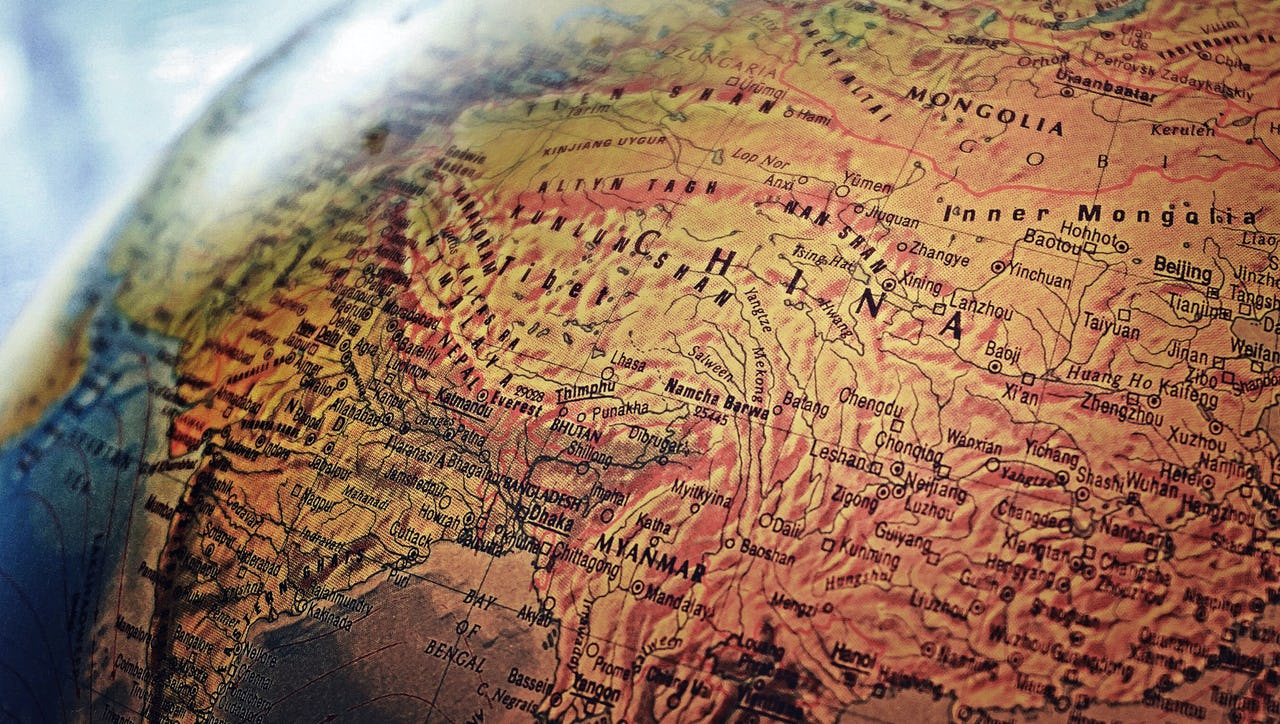The Ukraine Crisis Is a Major Challenge for China’s Arctic Visions

China is a close partner of Russia but it has struggled to deal with Putin’s war in Ukraine. Photo: Suzy Hazelwood
President Vladimir Putin’s full military escalation of Ukraine has put the world on edge. Although the war has not spread into the Arctic region, Russia’s aggression has will undoubtedly have long-term impacts on regional security and cooperation in the Circumpolar North.
First and foremost, the role of NATO will surely increase in the Arctic. In contrast to Putin’s intentions, the Ukraine crisis has intensified the cooperation between NATO and Finland and Sweden, the two Arctic nations that are not members of NATO. In Finland, where the “NATO question” has not been an issue for years, a citizens’ initiative demanding a referendum on application to join NATO gathered the required number within a few days.
Secondly, the future of Arctic governance is uncertain as it is difficult to imagine that the leaders of the other seven Arctic states would travel to the ministerial meeting on the Arctic Council in Russia. As Arctic research and Search and Rescue operations are very important for the Arctic states and peoples, it has been suggested that Arctic cooperation could continue in the form of the “Nordic Plus” amongst the seven Arctic states.
In response to Putin’s aggression, the US and EU have stood together surprisingly firmly, and announced strict sanctions that will have profound effects on the Russian economy. China, however, has had difficulties choosing its siding in the conflict. Against Putin’s hopes, China did not join Russia voting against the UN Security Council’s attempt to end the Ukraine war. Yet, China has criticized the Western sanctions against Russia.
For two decades, China has sought to be viewed as a responsible great power on a global stage, including the Arctic. In China’s first-ever Arctic strategy published in 2018, the Chinese government declared: “As a permanent member of the UN Security Council, China shoulders the important mission of jointly promoting peace and security in the Arctic. “
Presently, climate change constitutes a key security threat in the Arctic. China, the biggest carbon emitter in the world, is committed to international cooperation on climate change in the Arctic and beyond. On 28th February, the Intergovernmental Panel on Climate Change (IPCC) published its latest, very worrying report on the acceleration of global heating. On a side note, a Russian climate scientist apologized for the Russian invasion of Ukraine at the IPCC’s virtual meeting a day before the release of the report – an unexpected move that illustrates that Putin does not represent the views of the entire county. When his regime will be replaced, the world must be ready to continue dialogue and cooperation with the Russians.
Yet, climate change mitigation will not be possible if the leaders of the United States and Europe are occupied with a war in Europe. That is why China should forget its anti-American sentiments for a while and make its utmost efforts to maintain peace and security in the world.
China could show genuine global leadership by using its economic and political leverage to end Putin’s war in Ukraine. This would not only demonstrate that China lives up to its image of responsible great power but be in line with China’s own political principles and economic interests. In particular, China supports a strong doctrine of sovereignty and territorial integrity and opposes any kind of interference in other countries’ internal affairs – the principle that Putin has severely violated.
Moreover, the Ukraine crisis will have very negative impacts on the world economy, and therefore, on China’s economic growth. Due to coronavirus restrictions, there are no Chinese tourists travelling to Europe but the closure of the Russian airspace is likely to disrupt the transportation of cargo between China and Europe. As often claimed, the continuity of economic growth constitutes a key pillar of the legitimacy of the Chinese party-state.
In response to the annexation of Crimea, the EU and US set sanctions against Russia already eight years ago. Generally, China has benefitted from the situation as it has made Russia dependent on Chinese investments. On the eve of Beijing Olympics, Presidents Xi and Putin signed a joint statement calling on the west to “abandon the ideologised approaches of the cold war,” and only a week before Putin’s invasion of Ukraine, the two countries signed energy and food deals.
Notwithstanding, the relationship between China and Russia remains complicated. This raises a question: Is the tricky relationship really worth the price that the US (and eventually, Europe) will make China to pay? In the Arctic, it is hard to imagine that the US, Canada or the five Nordic countries would want to deepen economic cooperation or integrate China into regional decision-making forums in case it chose the siding with Putin’s Russia.
At the first glance, Chinese investors could benefit from the sanctions by replacing Western investors, especially the dramatic exit of BP and Shell, in the Russian oil and gas sector. Even if Chinese companies had the necessary know-how to do it, however, such a move would hardly be in line with China’s pledges to achieve carbon neutrality by 2060 and to stop investing in new coal-fired power projects abroad under the Belt and Road Initiative. Besides, the Ukraine crisis is likely to speed up the global transition towards a non-fossil economy. If China, which is already the world’s largest producer of solar energy, wants to continue to be part – not to mention the leader – of that development, it would not be wise to stand with Putin’s Russia.